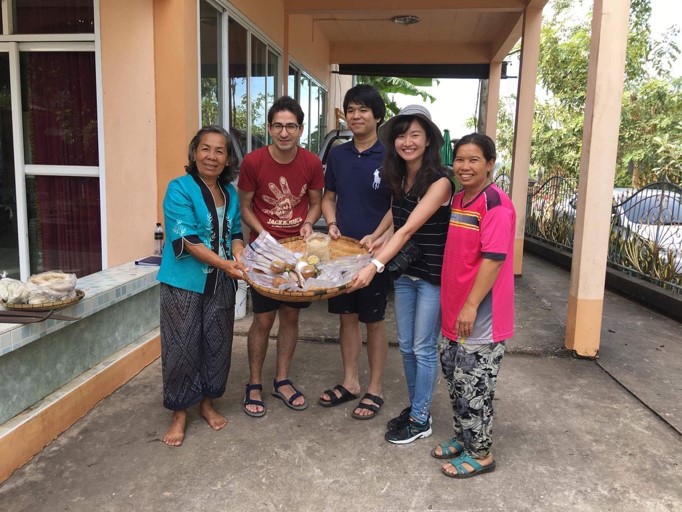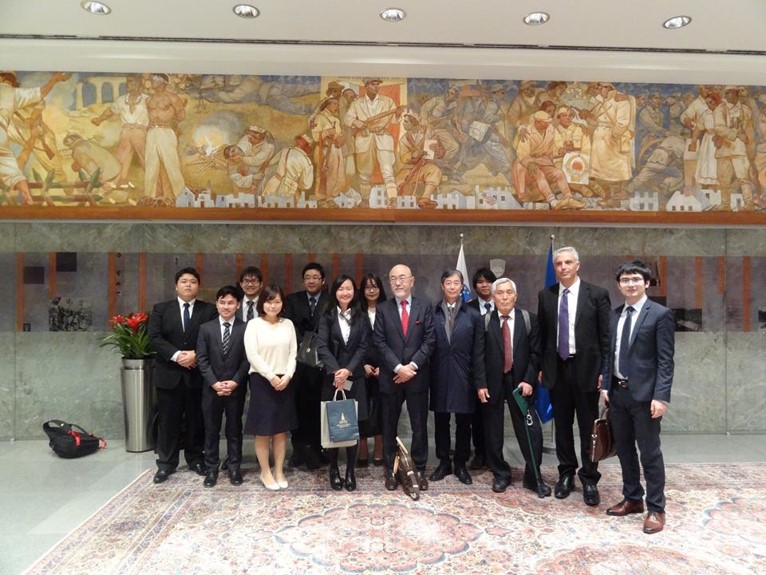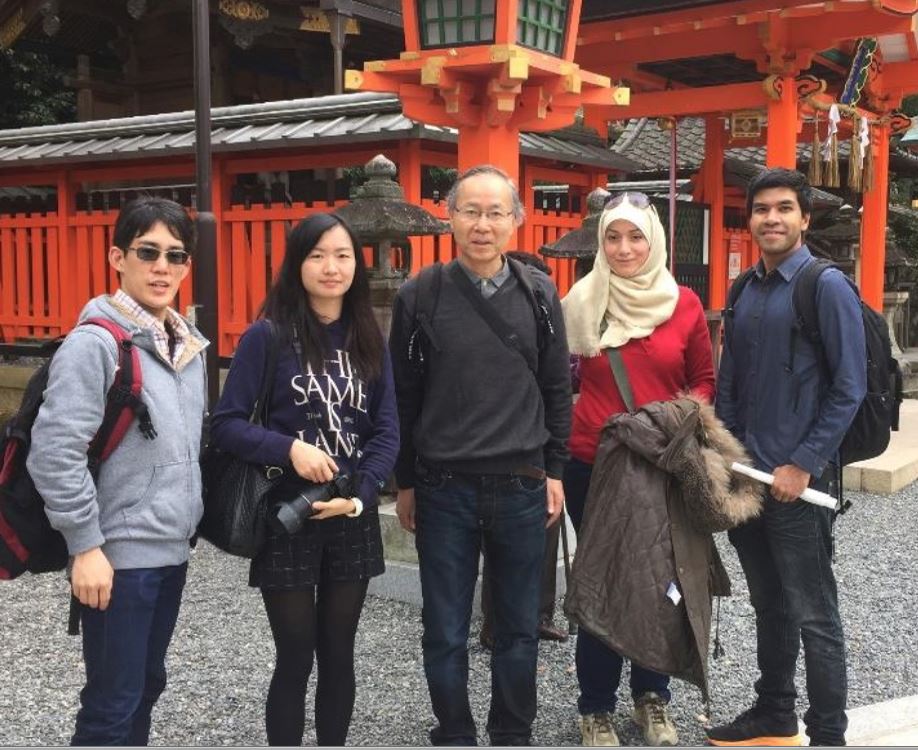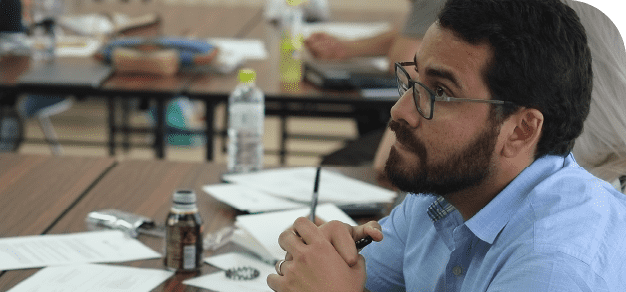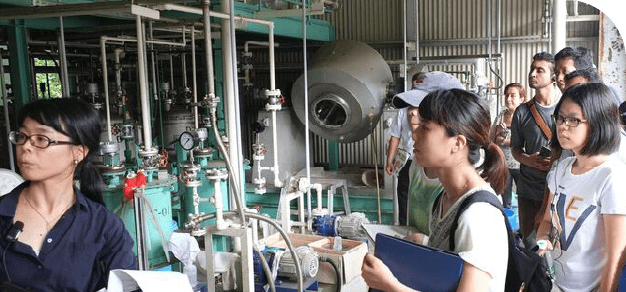GRM Students’ Reports
GRM Program Completion Report
Graduate School of Global Studies 陳 艶
2019/03/06
The knowledge I acquired through the GRM Program could be summarized in three categories: energy, natural disaster, and peacebuilding. This report reviews the activities and achievements in each category briefly, then looks at their impact on my doctoral thesis and my career development.
GRM provides a wide range of curriculums on energy, covering electricity, nuclear power, and renewable energy such as hydropower and solar power. Massive information on energy producing and utilizing has been provided by the professors from the Graduate School of Science and Engineering. I participated in several activities which have specifically focused on the renewable energy in remote areas, including the On-site Practice in Miyakojima City, Okinawa Prefecture (2014), and the fieldwork in Oki Island, Shimane Prefecture (2015).
The knowledge I acquired through the lessons and activities helped me gain an insight into the working mechanism of the energy and the decision-making process of energy policy. It inspired me to join the Environment and Energy Division when doing the internship in Mitsubishi Research Institute (MRI) in 2017, and I met few difficulties to get on the right track with the existing knowledge.
It also inspired our student project to look at the hydroelectricity development in the Mekong basin in 2017 (The other members were Chayadit Pumaneratkul from Graduate School of Science & Engineering and Mostafa Khalili from Graduate School of Global Studies). The project was an attempt to apply what we have learned through the GRM Program to the actual research project. With the help of our project supervisor, Professor Hayashida, we proposed an investigation on Environmental, Social and Trans-Boundary Impacts of Xayaburi Dam’s Construction in Downstream Mekong Basin. The goal of this project is to evaluate the impact of the dam construction from two aspects, i.e. from the social science aspect, the impact on the livelihood of the local residents, most of whom rely heavily on the yield from the Mekong river; from the natural science aspect, the impact on the biodiversity such as fish species and amount, and the relevant indexes such as water level and sediment amount. A ten days field trip in Thailand and Laos was conducted using the budget from GRM Program. However, the goals were only partially achieved because we could not get the permission to visit the dam site, neither could us access the data needed for analysis. After all, the project is a good practice for us to improve the skill of project management and problem-solving. Though I may not be engaged in any energy-related project in the short term, the issue itself will constantly be one of my concern because of its importance in understanding the economy as well as politics.
The natural disaster is another topic that I learned a lot through the GRM Program, including disaster recovery, disaster resilience, etc. The disaster relevant activities I took part in include the On-site Practice in the Philippines (2015), UN World Conference on Disaster Risk Reduction in Sendai (2015), and a private visit to the Minamisanriku-Cho, Motoyoshi-Gun in Miyagi Prefecture, which was hit by the tsunami in the Great East Japan Earthquake in 2011. Numerous efforts made by the government, companies, and researchers to build better resilience and to foster post-disaster recovery were seen, but the effect remains unclear.
What impressed me most was a visit to the coastal area of Sendai City right after attending the UN World Conference. Four years ago, the tsunami wiped out the town, after that the town remained as a ground with the ruins of the destroyed houses. A signboard was put up by the citizens to question the eligibility of Sendai City government for hosting the UN World Conference in spite of the stagnant reconstruction. Since then, the appropriate and effective way to deal with inevitable natural disasters became one of my concerns.
As one of the main disciplines in the GRM curriculum, peacebuilding, conflict mitigation and multicultural symbiosis comprise an important part of my learning in this program. Special attention has been paid to the Islamic society, couples of meaningful conferences and dialogues with scholars from all over the world have taken place within and outside the Doshisha University, which facilitated us to deepen the understanding to the Islamic culture. Also, two trips to Europe were taken to trace the Balkan Route of the refugees moving from Syria to other European countries. Germany, Austria, and the Balkans, including Serbia, Bosnia-Herzegovina, and Slovenia, were visited. The trips became vivid lessons for learning the background and the mentioned countries’ situations during the refugee crisis since 2015. They provided us with an inclusive perspective to understand the barriers to peace and coexistence by shedding a light on the difference in language, beliefs, history, and interests among different people.
Most of the topics in each activity in the three categories are interrelated. For example, when discussing the resilience to natural disaster, the energy supply has to be covered. This kind of training enabled us to take things from various viewpoints, now I could lay more emphasis on practicability and effectiveness while keeping the humanistic solicitude in mind.
With the knowledge and skills I learned through the GRM Program, I was able to look into the natural science relevant issues when doing my own research. For instance, in one of my case studies in rural China, a poverty alleviation project spent most of its budget to build solar power panel for the poor villagers, aiming at bringing them stable income through selling electricity. After studying the initial cost for installation, the cost for connecting to the grid, the capacity of the solar panels, the price of electricity, and the subsidy from the government, it became clear that the solar panels might be able to fulfill the energy demand of the poor families, but it could hardly be an income source for them. The knowledge of solar power generation I learned through the GRM Program made this analyze possible.
One of my reasons for applying the GRM Program is the idea of combining the knowledge of natural science and social science in order to solve social problems is attractive. The combination turned out to be difficult, but the Program helped us to build a comprehensive way of thinking, which could be useful in many occasions.
The GRM Program also helped a lot on building my career after the doctoral course. A great number of opportunities was provided for us to talk with people from the governments, international organizations, research institute, and the enterprises, through which I got a better understanding of their jobs. Moreover, the faculty and staff are always helpful in the process of job hunting. With their help, I managed to get the internship in MRI. The experience there has improved my time management skill and work efficiency, so I could finish my thesis as planned.
The experiences in the GRM Program has not only enriched my Ph.D. life largely but also broadened my horizons. I will always benefit from the skills I acquired through it, and the friendship I developed within the GRM network.
